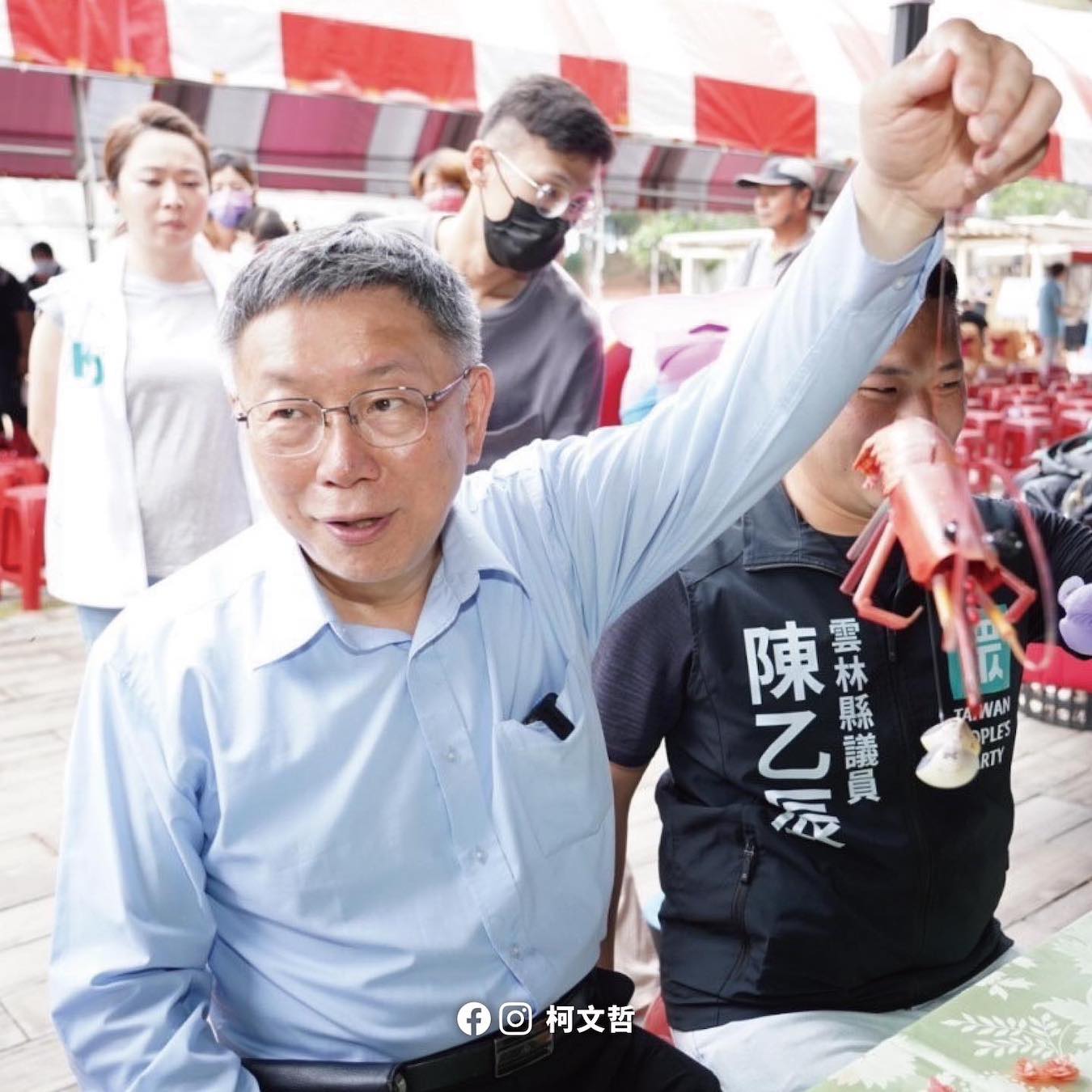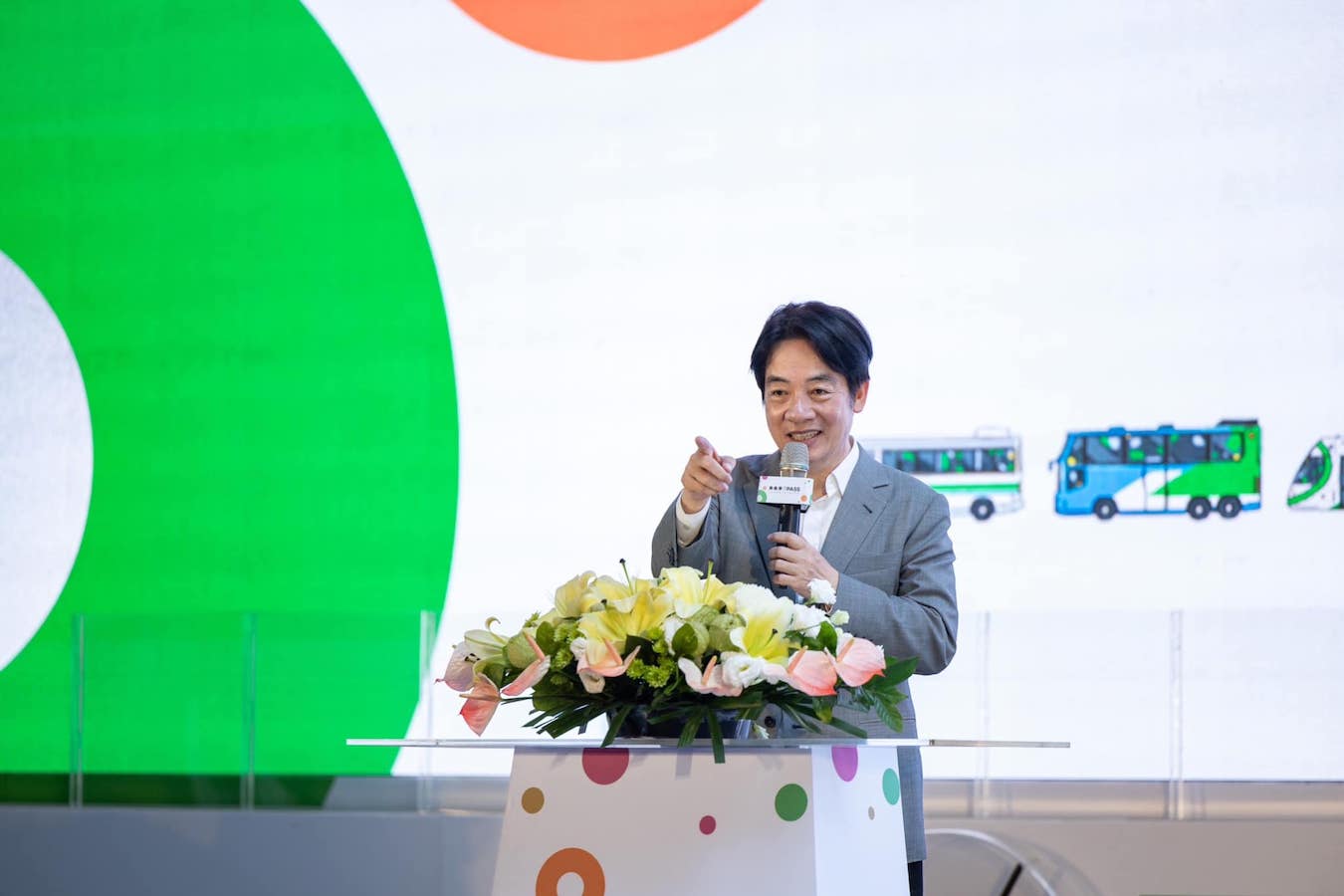by Brian Hioe
語言:
English
Photo Credit: TPP/Facebook
FORMER TAIPEI MAYOR Ko Wen-je, who is running as the TPP’s presidential candidate in the 2024 elections, continues to maintain an ambiguous cross-strait stance.
Ko has provoked ire in past weeks with his proposal to revive the CSSTA trade agreement. The CSSTA was originally inked in 2013, but backlash against the bill in 2014 has led it to be shelved for most of the past decade.
In particular, the CSSTA would have allowed for Chinese investment in Taiwan’s service sector industry, which constitutes more than 2/3rd of Taiwan’s GDP. As a result, this led to the eruption of the 2014 Sunflower Movement, which involved the youth-led occupation of the Taiwanese legislature, and was one of the largest social movements in Taiwanese history.
 TPP presidential candidate Ko Wen-je. Photo credit: Ko Wen-je/Facebook
TPP presidential candidate Ko Wen-je. Photo credit: Ko Wen-je/Facebook
Ko initially sided with the opposition against the CSSTA, riding on momentum after the Sunflower Movement to become the mayor of Taipei in 2014. But in past years, Ko has increasingly drifted toward the pan-Blue camp.
A major factor in Ko’s realignment was controversy regarding city-based cross-strait exchanges conducted between Taipei and Shanghai under his mayoral administration. As part of these exchanges, on many occasions, Ko would refer to Taiwan and China as one family on both sides of the Taiwan Straits, sharing a common destiny. To this extent, the exchanges framed Taiwan as part of China. Ko continued to defend the exchanges even after the 2017 Sing! China incident, involving attacks on pro-independence student demonstrators on the National Taiwan University campus by pro-unification gangsters associated with the Bamboo Union gang.
Ko has framed his shift on the issue of the CSSTA as that he was opposed to the “black box” means by which the agreement was passed, but not the agreement itself, or the notion of signing a free trade agreement with China.
In a similar timeframe, Ko has sought to cast doubt on the odds of Taiwan being able to join the CPTPP. Ko termed this to be impossible in recent public comments. The Ministry of Economic Affairs has, in turn, responded to Ko by citing how the Japanese government welcomed Taiwan’s application to join the CPTPP in September 2021. The CPTPP is the form the TPP took after the US withdrawal from the trade agreement in Donald Trump’s early days in office. The trade pact is now Japan-led, though the aim of the TPP was originally to cement allies of the US into a regional economic bloc to increase the incentive for Asia Pacific countries to jointly counter China.
As in the past, the pan-Blue camp has sought to sow disinformation about Taiwan’s ability to join regional trade pacts. For example, one has seen the claim that Taiwan would not be able to join the CPTPP unless cross-strait relations were first stabilized, never mind that the CPTPP was precisely originally aimed at cementing together Asia Pacific countries against China. In the meantime, the Tsai administration has cited progress in trade talks with the US as increasing the potential odds for Taiwan being able to join the CPTPP, as comments by Premier Chen Chien-jen indicate.
 DPP presidential candidate William Lai. Photo credit: William Lai/Facebook
DPP presidential candidate William Lai. Photo credit: William Lai/Facebook
In the meantime, DPP presidential candidate William Lai has sought to strike a moderate tone. Lai commented that he would like to meet with Chinese President Xi Jinping, when asked by a student at the National Taiwan University who he would most like to have dinner with. Otherwise, Lai stated that he would like to see a Taiwanese president visit the White House.
Ko has sought to attack Lai over the latter comments, suggesting that Taiwan should seek to strengthen ties with all countries, rather than just the US. Of course, Ko’s comments take place at a time in which the pan-Blue camp has increasingly sought to attack strengthening ties between Taiwan and the US, while sowing doubt about the reliability of the US as an ally.
By contrast, while the pan-Blue camp calls for Taiwan to distance itself equally from the US and China, in practice this means again calling for renewed trade relations with China. It may not be surprising if Ko continues with this line of attack against the DPP, then. With KMT presidential candidate Hou You-yi polling worse than Ko, Ko may aim to supplant Hou as primary candidate of the pan-Blue camp by increasingly embracing traditional stances of the pan-Blue camp.

